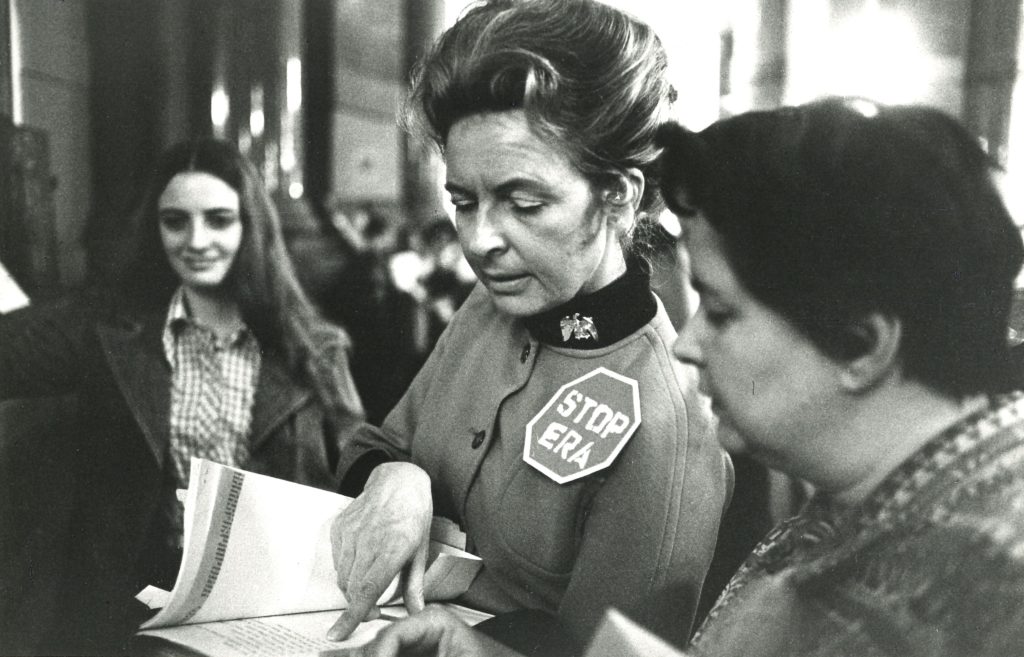To many, Phyllis Schlafly lived a life of contradiction. Feminists said in debate that the very fact that Phyllis could publicly debate was a privilege she owed to the feminist movement. They said she was a liberated woman who fought against liberation. Phyllis didn’t see things that way. She repeatedly said that she saw absolutely nothing good come from the women’s liberation movement.
One common claim of the feminists of the 1970s was that they were successors to the suffragettes. In the feminists’s eyes, to oppose them was to oppose women’s right to vote. This is made evident by the common designation of this movement as “Second Wave” feminism. The implication is that women’s suffrage was the first wave, followed by the pro-ERAers. However, it’s difficult to establish an ideological link between the feminists of the 1970s and the suffragettes. One wanted liberation, the other wanted participation. One wanted unrestricted abortion and lesbian privileges, one just wanted a vote. Besides, Phyllis Schlafly said numerous times that she was entirely in favor of women’s suffrage. To tie her criticism of feminism to the suffragettes is intellectually dishonest.
Feminists also tried to foster legitimacy by saying they were needed to overcome discrimination in higher education. However, Phyllis Schlafly was living proof to the contrary. She went to Washington University and Radcliffe in the 1940s, long before the women’s liberation movement came on the scene. Phyllis’s mother went to college before her. In Phyllis’s mind, it was clear women didn’t need liberation to go to school.
As Phyllis saw it, the women’s liberation movement had to be advocating for “liberation” from something, and that something must be “husband, home, and family.” They wanted women to take on the added burden of providing for themselves rather than honoring the traditional family where the husband is responsible to support his wife. That made the ERA more of an “Extra Responsibilities Amendment” than an “Equal Rights Amendment.” If that’s what the women’s libbers were pushing, it’s no wonder Phyllis Schlafly said she didn’t owe anything to their movement.

